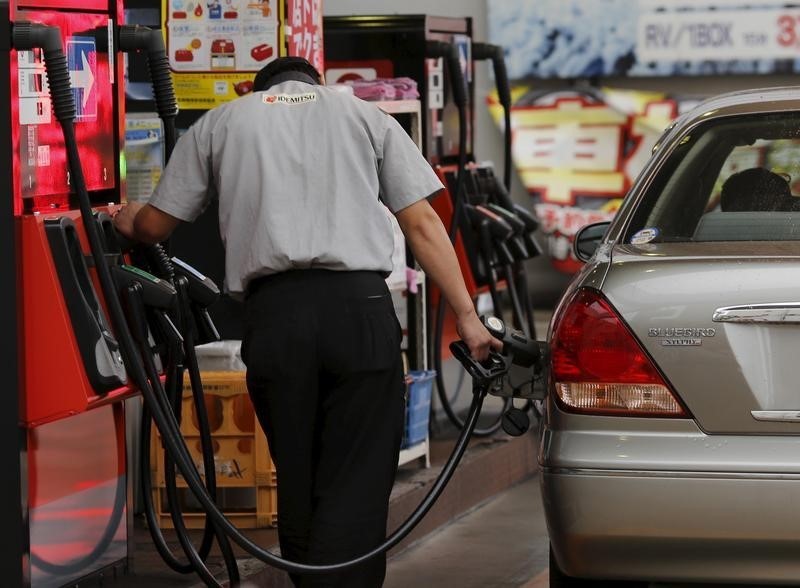By Henning Gloystein
SINGAPORE (Reuters) - Crude oil prices fell on Tuesday as traders took profit following a 3-4 percent upward swing in the previous session, with weak economic growth denting the demand outlook amid plentiful supplies.
Oil markets have seesawed since the beginning of the week, torn between data that points towards prices bottoming out after a more than 50 percent fall over the last year and a global glut that bearish analysts say will lead to further losses.
Traders also focused on the soon-to-expire front-month contract in the West Texas Intermediate (WTI), which serves as the U.S. benchmark. WTI's October contract
U.S. West Texas Intermediate (WTI) crude futures (CLc1) were trading at $46.04 per barrel at 0600 GMT, down 64 cents. Globally traded Brent futures (LCOc1) were at $48.44 per barrel, down 48 cents.
Analysts said the drop in prices was a result of both a weak economic outlook and a continuing surplus of oil supplies.
"Watch oil for early warnings on global growth and U.S. (interest) rates," Barclays (LONDON:BARC) said on Tuesday in a report on commodities cycles.
"Falling oil prices are having a big influence on decision-making because they raise concerns about potential deflation, but also because they are viewed as a signal of weaker global demand than is evident in available macroeconomic data," the bank said.
Other analysts also say oil prices still have space to fall. Several banks including Goldman Sachs (NYSE:GS) and ANZ have revised their price forecasts downward this month, arguing it will take until 2016 or 2017 to reduce an overhang that has built up over the last year by output soaring just as demand slows.
Yet Tuesday's price dip came after oil rallied the previous session, with U.S crude surging nearly 5 percent on signs of declining stockpiles and a fall in drilling activity, which implies lower future oil production. [EIA/S]
In another indicator that prices may have bottomed, hedge funds continued to pare short positions in U.S. crude oil last week, a sign they no longer believe in further price falls.

On the demand side, China's implied oil demand rose 10.2 percent from a year earlier to 10.75 million barrels per day (bpd) in August, Reuters calculations using official data showed on Tuesday. August demand was also up 1.2 percent from July's 10.62 million bpd.